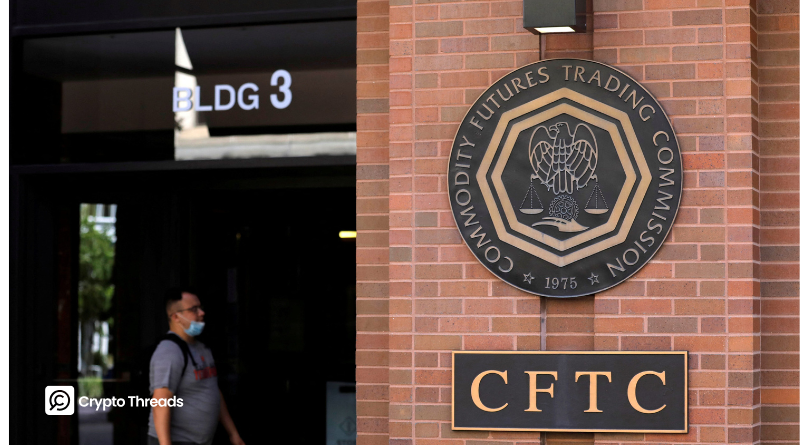CFTC Faces Critical Capacity Challenge as CLARITY Act Pushes for Expanded Crypto Regulation
CFTC regulation landscape Source: Merkle Science
The Commodity Futures Trading Commission (CFTC) stands at a regulatory crossroads as Congress considers dramatically expanding its authority over cryptocurrency markets through the newly proposed CLARITY Act. However, mounting evidence suggests the agency may lack the operational capacity to effectively oversee the entire crypto industry.
CLARITY Act Creates New Digital Commodity Framework
Representative French Hill’s CLARITY Act introduced in May 2025 represents the most comprehensive attempt to establish clear regulatory jurisdiction over digital assets. The legislation creates a new asset category called “digital commodities” and positions the CFTC as the primary regulatory authority for most cryptocurrency activities.
Under this framework, qualified digital assets would gain the ability to trade freely on secondary markets while falling under CFTC oversight rather than the Securities and Exchange Commission’s more restrictive securities regulations. This shift could fundamentally reshape how cryptocurrencies operate within the US financial system.
Brian Quintenz awaiting confirmation Source: Wikipedia
Commissioner Exodus Creates Regulatory Vacuum
The CFTC’s ability to implement expanded crypto oversight faces a significant obstacle: the agency currently operates with a severely understaffed commission. When President Trump took office in January 2025, former Democratic Chair Rostin Behnam resigned, leaving the five-member commission in a 2-2 deadlock between Democratic and Republican commissioners.
Trump nominated Brian Quintenz, former CFTC commissioner and current a16z Crypto policy head, as the new chair in February. However, his confirmation hearing only occurred in June, leaving the agency in prolonged uncertainty. During this deadlock period, critical regulatory functions requiring majority votes—including new regulations, policy statements, and enforcement actions—remain effectively paralyzed.
Multiple Commissioner Departures Compound Staffing Crisis
The situation deteriorated further when two additional commissioners, Republican Summer Mersinger and Democrat Christy Goldsmith Romero, departed in recent weeks. Even more concerning, acting Chair Caroline Pham has indicated she will resign once Quintenz is confirmed, potentially leaving the commission with minimal operational capacity.
US regulatory framework evolution Source: PYMNTS
The remaining Democratic Commissioner Kristin Johnson has also announced her intention to leave, though without a specific timeline. This exodus could result in Quintenz operating as effectively a single-person commission, raising questions about regulatory oversight and due process in crypto market supervision.
Prediction Markets Signal Broader Regulatory Challenges
The CFTC’s recent struggles with prediction market oversight provide a concerning preview of potential challenges in crypto regulation. The agency initially promised a sports betting roundtable within 45 days in February but ultimately canceled the event just one week before it was scheduled.
This cancellation occurred amid intense legal battles between federally registered prediction market platform Kalshi and multiple state gaming regulators. The CFTC’s inability to provide timely guidance during this crisis highlighted capacity constraints that could prove even more problematic with expanded crypto oversight responsibilities.
Industry Implications and Future Outlook
The staffing crisis presents a paradox for the crypto industry. While many market participants welcomed the end of “regulation by enforcement” that characterized the previous administration, the current regulatory vacuum creates different challenges. Without adequate CFTC capacity, the clarity that the CLARITY Act promises may remain elusive.
CFTC headquarters in Washington Source: Fox Business
Financial services lawyers and industry observers note that successful implementation of comprehensive crypto oversight requires not just statutory authority but also sufficient human resources and institutional capacity. The current commissioner shortage suggests these fundamental requirements may not be met even if the legislation passes.
Key Takeaways for Crypto Market Participants
The unfolding situation at the CFTC carries several important implications for cryptocurrency market participants:
Regulatory Timeline Uncertainty: Even with the CLARITY Act’s passage, implementation could face significant delays due to staffing constraints and operational limitations.
Enforcement Gaps: The current commissioner deadlock limits the CFTC’s ability to pursue new enforcement actions, creating temporary regulatory breathing room that may not persist.
Market Structure Evolution: The proposed digital commodity framework could reshape how cryptocurrencies interact with traditional financial systems, but execution depends on adequate regulatory capacity.
Bitcoin Ethereum commodity status Source: Altcoin Buzz
As the crypto industry awaits greater regulatory clarity, the CFTC’s capacity challenges serve as a reminder that effective oversight requires more than just legislative authority—it demands adequate resources and institutional capability to match the scope of responsibility.



